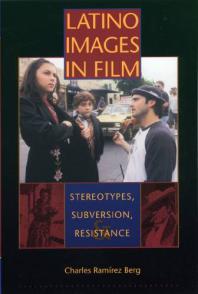
While anyone can use the STLCC library databases on campus, only current students, faculty, and staff may use the databases off-campus.
Need help with your STLCC credentials?
Using books for biology research
Do I have to read the whole book? No, not necessarily.
Keyword searching and Subject searching each have their strengths. Keyword searching allows one to begin a search without knowledge of official Library of Congress subject headings. Also, when keywords are combined with the word "AND," different concepts can be linked to narrow ones search.
Subject heading searching, though, can be more targeted and precise once one comes to learn what the subject headings are in a field. This is especially useful in large catalogs such as MOBIUS, where keyword searches can often produce lengthy results lists with a quite a few false hits.
NOTE: Since generally the more current information you can find the better,remember to apply "date" limits on Keyword searches or "Limit/Sort" and then "Sort results by year" options for Subject searches. These features are located at the top of your results screens.
When searching in the Library Catalog for books, it is best to start simple. Just typing in stereotypes as a keyword search will allow you to browse a wide variety of books that matched the keyword search.
Once you select a topic, you can continue searching and refine your keyword search strategies, Use terms related to your topic connected with the word "AND."
Keyword searching is a strategy which may require repeated attempts before arriving at useful results. If you are finding that you aren't having much success at selecting keywords, you might Ask-a-Librarian for help.
Library of Congress Subject Headings are terms which librarians use to describe the subject contents of books. Since librarians agree to use the same terms, once you learn an official subject heading you can use it in many different library catalogs. Sometimes subject headings can be difficult to guess because they are technical or formal terms for a topic. You may need to Ask-a-Librarian to find appropriate subject headings for your topic.
Below are some useful general subject headings in the field of biology. Each of these has extensive sub-headings
Tip: Results from your keyword searches may also help you identify appropriate Library of Congress Subject Headings. Look at the complete record of a book which is useful for your topic to find its subject headings. You can then use these headings to search your topic in the STLCC Catalog more efficiently. Again, Ask-a-Librarian for help with subject searching if you are having difficulty.
Reference books including social science, green issues, and criminal justice.
SAGE Knowledge provides an interface to search SAGE Book, Business Case, Reference, and Video titles in the social sciences. Links to SAGE Journals and SAGE Research Methods are provided through a "SAGE Recommends" widget.
PDF Guide
 Latino Images in Film : Stereotypes, Subversion, and Resistance
by
Charles Ramírez Berg
Latino Images in Film : Stereotypes, Subversion, and Resistance
by
Charles Ramírez Berg
 Ouch! that stereotype hurts [videorecording]: Communicating respectfully in a diverse world
Ouch! that stereotype hurts [videorecording]: Communicating respectfully in a diverse world
|
St. Louis Community College Libraries |
Florissant Valley Campus Library |
Forest Park Campus Library |
Meramec Campus Library |
Wildwood Campus Library |
|
|